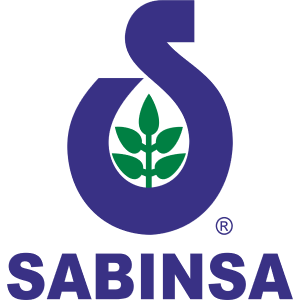It's hard to believe that we are already in the year-end holiday mood and the end of 2017 is fast approaching! From industry's perspective, this year has offered several positive trends, some emerging opportunities and, of course, a few challenges.
The latest results from CRN's annual consumer survey on dietary supplements indicates the overall state of the dietary supplement industry is strong and healthy, and the future looks promising.According to the survey, 76 percent of U.S. adults are taking dietary supplements—an all-time high.The survey also suggests 87 percent of U.S.adults have confidence in the safety, quality and effectiveness of dietary supplements overall.
Various factors might have played a substantial role in realizing this consumer confidence.For one, a significant increase in clinical substantiation of nutraceuticals and herbal products has been seen this year.This positive trend is encouraging given that, during previous years, several unethical players have taken both FDA and consumers for a ride by launching substandard or adulterated ingredients positioned as “natural and safe." Several ingredients and finished products have hit the shelves, tested for safety and efficacy in well-designed clinical trials. This not only meets FDA requirements but also helps in building consumer trust in brands.
Another factor is a rapid shift in population demographics (i.e., baby boomers getting into the mature phase of their lives) is also providing numerous growth opportunities to the industry. For example, a huge potential growth in specific categories like brain health, bone health, blood sugar and weight management is inherent with an older demographic.
Additionally, the “clean label" trend has blossomed as health-conscious consumers look for products containing fewer and simpler ingredients with transparent substantiation for claims. This is a win-win situation because customers are ready to pay a premium for a clean label product, and companies following best practices stand to benefit.
At the same time, the industry is staring at several challenges going forward. It has to live up to the consumer's expectations to deliver new, and better, products that are not only scientifically-validated but also devoid of any adulteration—in other words safe and effective.Adulteration of natural curcumin may be the best example to represent this pitfall, which we view as one of the biggest challenges the natural products industry has ever faced. Invasion of synthetic curcumin in the dietary supplement industry has become so rampant that consumer's health, industry credibility and sustainability all are at risk. Hence, it is high time that fair players of the industry concerned about our standing with regulatory agencies, as well as customers, should take the necessary responsible steps to weed out such imitations.This is very much required to insulate the industry as a whole from negative media coverage on bad science or lack of science and, more importantly, to stay relevant and trust-worthy, while satisfying consumers' needs.
Other concerns requiring industry attention is ensuring supply chain integrity, product quality and transparency in raw material sourcing; educating consumers on good manufacturing practices (GMPs); following robust testing protocol at all stages of manufacturing; and, of course, Good Agricultural and Collection Practices by following the practice of sustainability and contract farming.
Lastly, though sales of multivitamins and minerals, curcumin, probiotics and boswellia led the market over the past year, there are several new dietary supplements like black cumin (Nigella sativa) and almond protein with tremendous potential, owing to their range of health and wellness benefits that will catch consumer attention, to challenge existing market leaders' positions.
Shaheen Majeed, president of Sabinsa Worldwide, has been involved in nearly everything the Sami Labs / Sabinsa Group of Companies does. He oversees Sabinsa's contract farming program to ensure best agricultural practices and fair pay for farmers, is deeply involved in cGMP and regulatory compliance at its factories and offices throughout the world, and oversees GRAS status applications. He holds board positions with Sabinsa, Sami Labs and Sami Direct, the Group's multi-level marketing company in India. He oversees an extensive marketing program, Latin America business development, and guides many clinical studies through the publishing process. He has managed contract manufacturing, cosmetic marketing and launched VetVitals, the pet supplements ingredient line. Majeed's first job was in the Sabinsa warehouse when he was just 17 years old, and over the past 23 years he has held a variety of positions representing the company's substantial portfolio of proprietary nutritional and cosmeceutical ingredients










